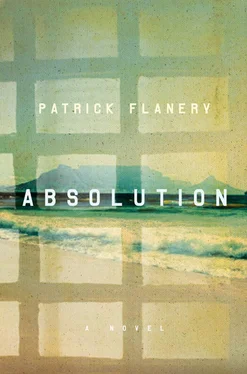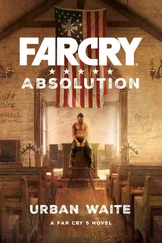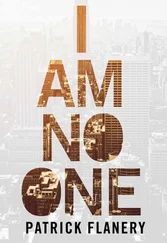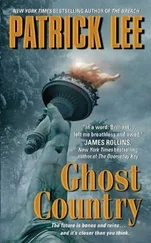As the evening wore on and Ilse continued to rage there in the corner, Peter consoling her now and then, cooling her fire, you felt a tickle of resentment in your chest, a complex stirring. Who was this woman to be so sanctimonious, to say and do what she wanted without having to face the consequences?
*
I put you aside, Laura, for as long as you will remain silent, and reply to Sam, teasing him, coaxing him onwards, hoping to show him the way, to force him into making the first move, which I am too great a coward to make.
Dear Sam,
Thank you for your message. Have no worry, I am not offended at your shock, although I suspect your French friend would also have counselled you not to direct the recipient of your correspondence to react in a particular way to your words. One reacts to what words say, and sometimes — too often — intent can be opaque. A case in point: the words I have written sound pricklier than I mean them to. If you were here, you would see the smile on my face and know that I am amused, but my brain lacks the energy to put that amusement into my words, if you see what I mean. So we read, interpreting the intention of the other according to what the text says (the text that the other has written). In the end there can only be that , the words on the page, or in this case on the screen. So let me reassure you that I am never offended by anyone being shocked at what I may have done or what I may have said, least of all by what I may have written. It has often been my intention — my dearest hope — to shock in one way or another. (There’s a revelation for your book.) I fear that I have very rarely managed it, so your shock is a kind of gift to an old woman, and it will keep me warm at night, although I have no need of warmth at present as the heat here is truly terrible — 33 degrees Celsius today and a southeaster to make it that much more unpleasant. They say sharks have been spotted in False Bay, sharks the size of helicopters or dinosaurs, sharks the size of minibuses, sharks as big as nuclear submarines. One does not know what to believe. Marie will not go within twenty metres of the ocean so convinced is she that sharks are destined to start coming out of the water and taking their prey from land. For myself, I have not been swimming in any other water but my own pool for a long time, and have no intention of changing that habit. There it is again — intention, that old bugbear.
You will not apologize again, please, for your questions to me. (It is different, I would say, to command an action in one’s correspondence than to demand a certain kind of response to one’s words; and here, you should know, I smile again, tongue in cheek.) I know I am a difficult prospect for an interviewer. Reputation has made me so. It is my suspicion that your time in America has made you more direct, though you retain some of your South Africanness; if anything, it was that directness that surprised me on occasion. With the British and even with local scholars, there is more circumlocution — questions in the form of paragraphs or mini-essays, questions that quite intimidate the questioned. I always think if the interviewer has so much to say to the interviewed, then what use am I? Know that I appreciated your (general) restraint on that point. I don’t know if it was conscious, nor does it really matter.
Reviews, yes, I read them. I shall look forward to yours and trust you will be honest about the places where I have failed. Be sure, I know there are failures in the book, things I wished to say but could not, for the sake of others, things I said badly, less directly, than I should have liked. It is all about protection — protection of myself, protection of my family. (I can be direct here, in private. My instead of one .) That is why the book, as you will discover, is so distanced and distancing. What safer way to write about the self than from a distorting distance?
An eager young man at the University of Stellenbosch who writes rather a lot of nice, perfectly well-intentioned (there it is again) but quite mad twaddle about my books has asked me to give a reading at the Winelands Literary Festival; you’ll no doubt know who I mean. I have momentarily dropped his name into my mental waste bin and cannot be bothered to retrieve it. Anyway — I accepted before I could think better of it. I wonder, perhaps, if you might consider coming?
Yours,
Clare
PS I suppose you ‘do’ holidays. I do not. But I shall wish you ‘happy holidays’ nonetheless. I used to escape from holiday gatherings on long walks, when one could still walk ‘relatively unmolested’ (I remember that phrase of yours) in this city, up on the mountain above the Rhodes Memorial where the trees and the university architecture almost fool one into thinking it the Palatine Hill. Such walks are no longer possible, not for me or for most in fact. Even groups of hikers with whole packs of dogs are no longer safe. If you came to Stellenbosch in May, perhaps we could find a way and a time to walk. I should like that.
Life since the death of his parents had felt like a series of corners: a corner of his aunt’s small house; a corner of a room or a series of rooms at school and then at university; a corner of an airplane cabin; a corner of his dorm room in New York, half-inhabited by other creatures and layers of dirt that reappeared a day after washing them away. Sarah offered more than a corner. She was space and light and airiness and a confidence of movement and grace that was so natural and unconscious he could only marvel at her.
He didn’t know what it might mean, to begin a relationship with an American, to throw in his lot with a different country. He accepted that he was getting ahead of himself; he also knew that he had almost no one else in the world — just an aunt in a dorp in the middle of nowhere, someone who hadn’t wanted him in the first place. He had no connections to speak of, no money, no privileges other than those he might earn.
Tell me something about your exotic childhood , Sarah said, tracing an ellipse on Sam’s cheek over a scar whose origin he could not remember because it had been made when he was still an infant. A part of him had a memory of his mother telling him a cat got into his crib, while another echo told him he had fallen against a barbed-wire fence. Another still said he had been pulled up into someone’s arms and his face slashed with a broken bottle when his parents had taken him somewhere they shouldn’t have. Whatever the case the scar was there and was not going away. It had been a part of him for as long as he could remember looking like the person he recognized as himself. To imagine his face without the scar on his left cheek was to imagine someone else’s face, another person and a different identity, a self he might once have been but could now never be. It made him remember the scar on his father’s face, a face so unlike his own that at times it seemed as though scars were the only things that connected the two of them.
She traced the ellipse over and over with her fingertip until he told her to stop and wrapped his hand around hers and examined the swimming surface of her eyes. Exotic was a strange way to describe it since his childhood had never seemed anything other than routine to him, apart from the death of his parents and the circumstances that had delivered him into the care of his aunt. But there was nothing exotic even about those events in the way that most people mean ‘exotic’. To Sarah he supposed he must appear exotic and, strictly speaking, that was the correct way to describe him. Compared to her, he was from outside, from a country as foreign as it was possible to be, even though he felt strangely at home in America, which was both as much and as least like home as anywhere might be. Before coming to New York he had always assumed that Britain was his country’s model and frame of reference, but the longer he spent in the city he realized how wrong he must have been. America felt like his country in different terms, its inverse and possibility, its cultural twin and opposite.
Читать дальше












